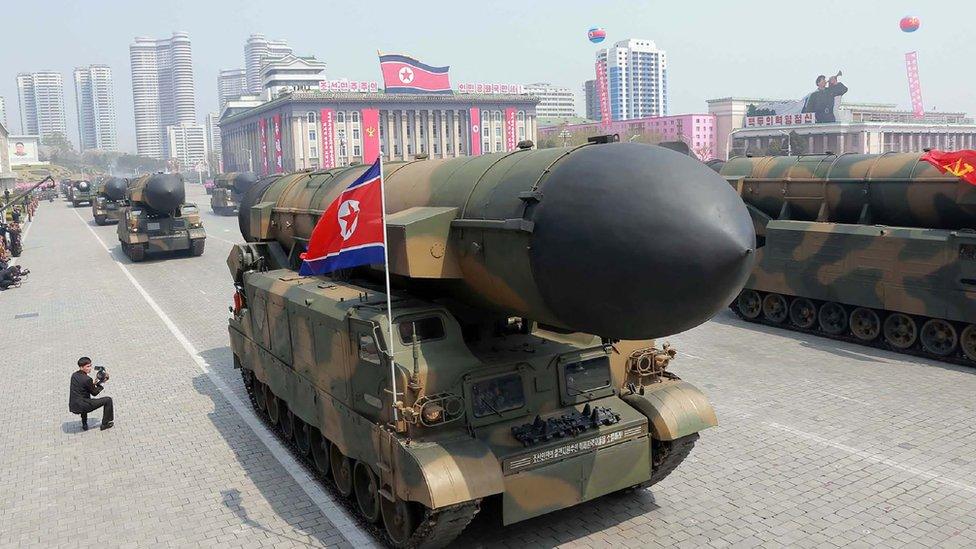North Korea 'willing to restart' nuclear talks with US
- Published

Mr Trump and Mr Kim briefly met on 30 June, but talks are yet to resume
North Korea is willing to restart denuclearisation talks with the United States later this month, the country's vice foreign minister has said.
Choe Son-hui said they were willing to resume "comprehensive" discussions in a setting agreed by both sides.
Her statement came after US Secretary of State Mike Pompeo voiced hopes for talks to resume.
Hours after Ms Choe spoke, two short-range projectiles were reportedly launched from North Korea.
It's the latest in a series of tests in recent months.
At their first meeting, last year, US President Donald Trump and North Korea's Kim Jong-Un agreed to the "complete denuclearisation" of the Korean peninsula - but without determining what that meant or how to achieve it.
Discussions on the finer details broke down in February, during their second summit in Hanoi.
What has North Korea said?
Ms Choe said on Monday that North Korea was willing to sit "face-to-face" again at an agreed time and place around late September.
In the statement, she urged Washington to come with a fresh approach in order to keep hopes for a deal alive.
"I want to believe that the US side would come out with an alternative based on a calculation method that serves both sides' interests and is acceptable to us," she said, according to Reuters.
The last summit broke down after a rift emerged over the lifting of sanctions.
The nuclear word Trump and Kim can't agree on
In June, Mr Trump and Mr Kim spoke again at a historic meeting at the Demilitarized Zone (DMZ) between the two Koreas.
During a brief discussion the two leaders agreed working-level talks should resume, but they still have not.
"I have a very good relationship with Chairman Kim," Mr Trump told reporters at the White House on Monday. "I always say having meetings is a good thing. We'll see what happens."


This is the latest of several North Korean short-range missile tests which have taken place since May. It is a programme that has drawn little criticism from Washington, which has tended to focus upon ensuring a moratorium on Pyongyang's longer-range testing.
But the short-range tests matter. They enable North Korea to improve on what appears to be a relatively new weapon, similar to the Russian Iskander system, a solid-fuelled missile capable of carrying either a conventional or a nuclear warhead with a range of some 300km (186 miles).
The missiles in this latest test travelled just a little in excess of this. Given their probable accuracy, they threaten US and South Korean bases, while their trajectory poses significant problems for existing anti-missile defence systems.
Pyongyang is again signalling it may resume talks on its nuclear weapons programme. But so far, the Trump administration's approach has yielded little and there is no indication that either Washington or Pyongyang is ready to pursue the basic detailed, diplomatic spade-work essential for any agreement.

What about the new tests?
South Korean military officials say two projectiles were fired toward the sea at about 07:00 local time on Tuesday (22:00 GMT Monday).
They were launched towards the east from Kaechon in South Pyongan province and travelled about 330km (205 miles). A national security council meeting was held in response.
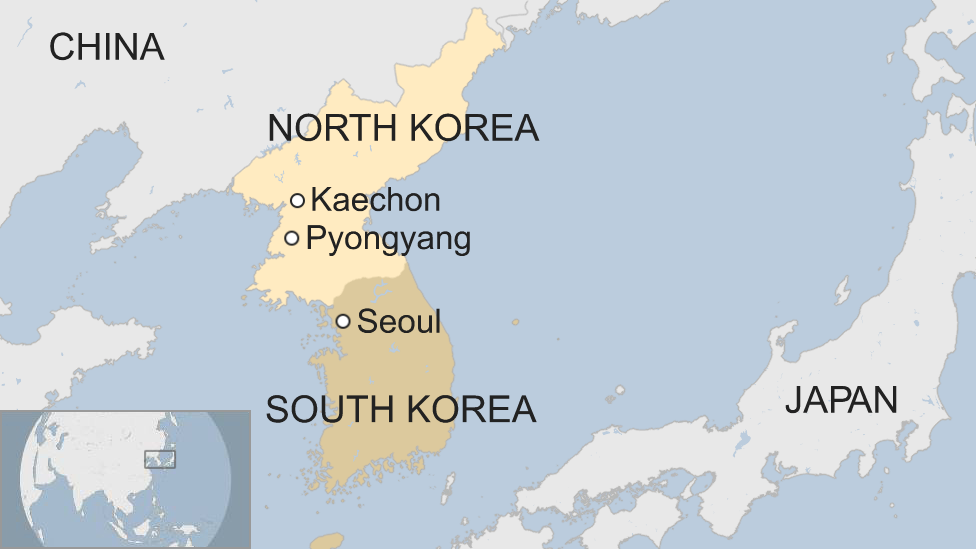
A senior US official told the AFP news agency they were aware of the latest reports.
"We are continuing to monitor the situation and consulting closely with our allies in the region," they said.
Speaking to US media on Sunday, Secretary of State Mike Pompeo said the administration was "disappointed" at the ongoing tests.
"We wish that he would stop that. But our mission set at the State Department is very clear: to get back to the table," he said.
- Published24 August 2019

- Published21 August 2017
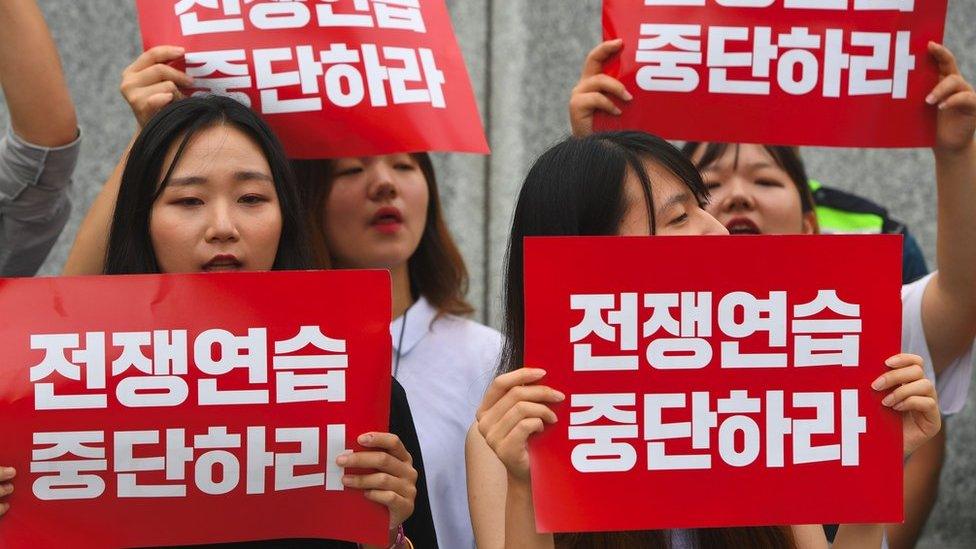
- Published26 July 2019
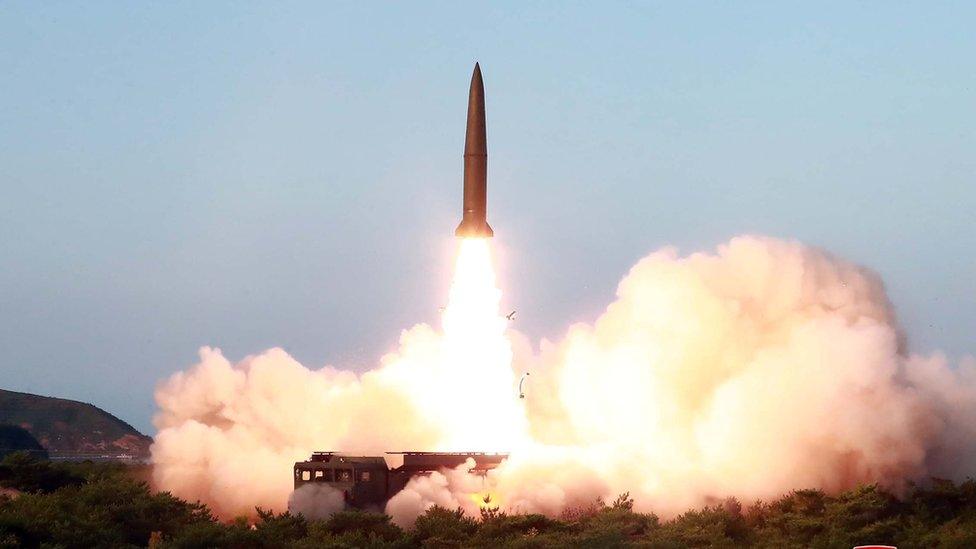
- Published25 July 2019
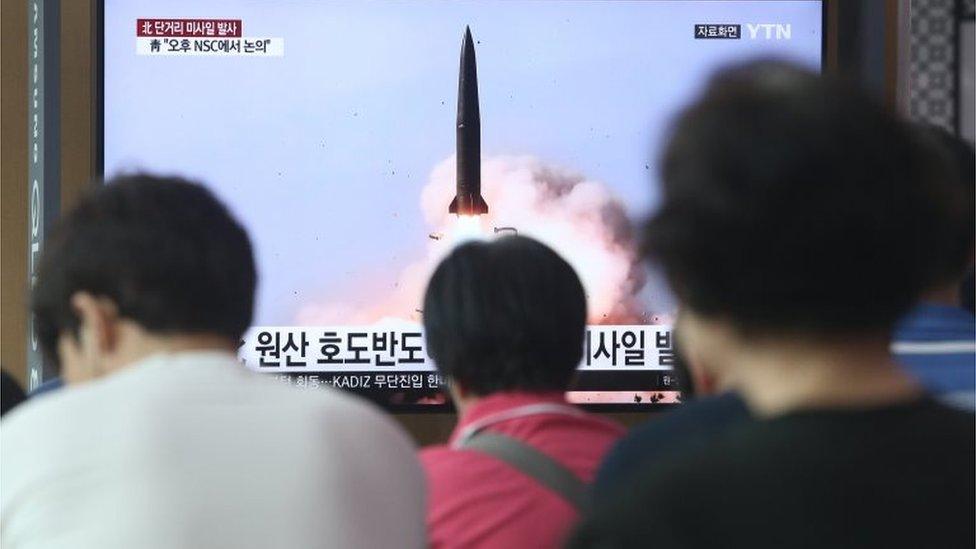
- Published28 February 2019
